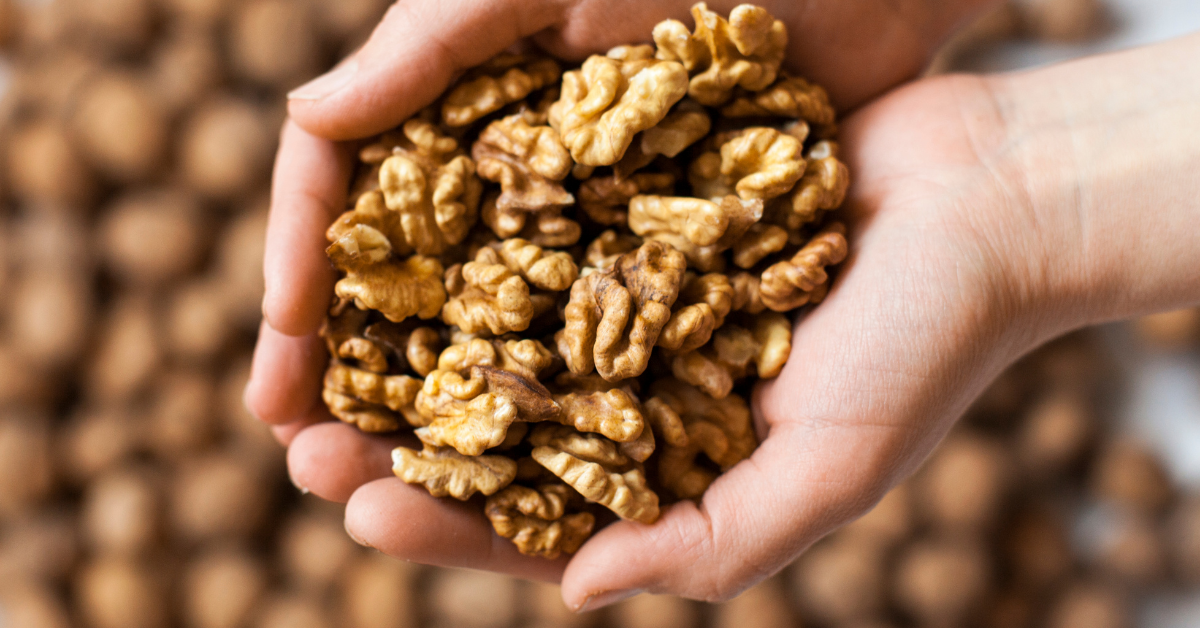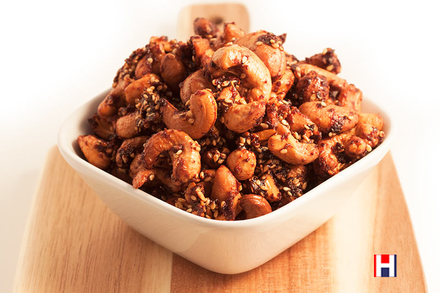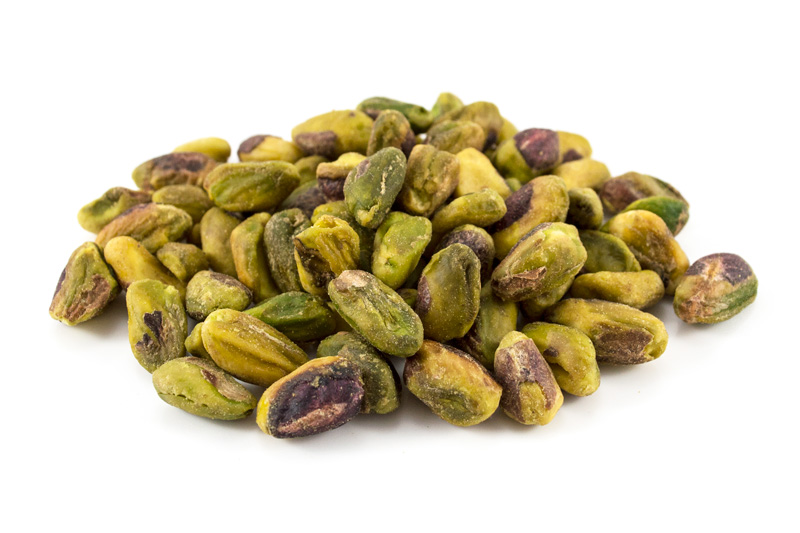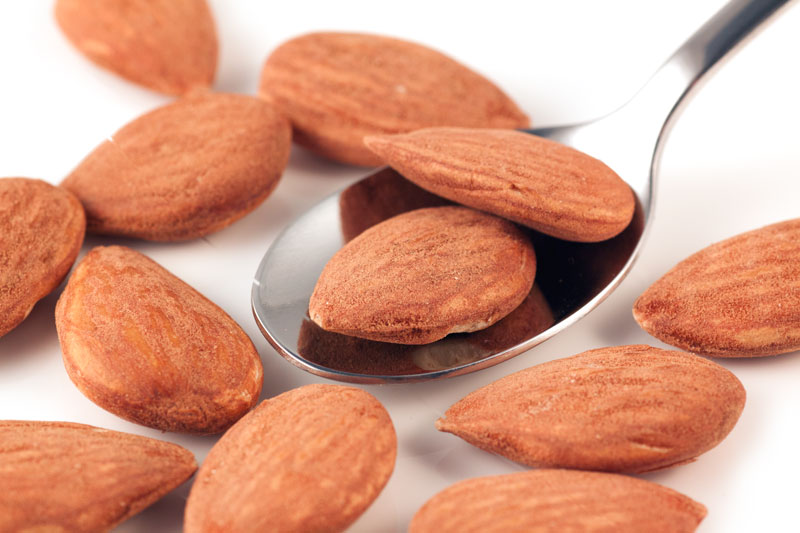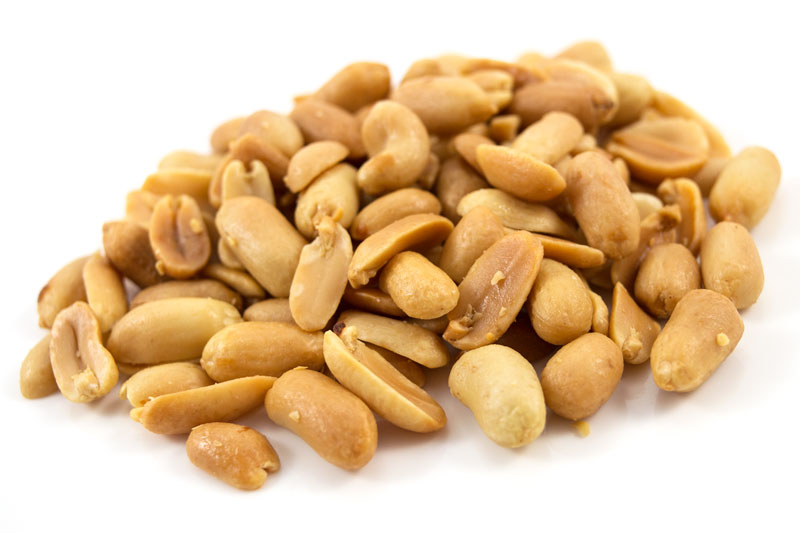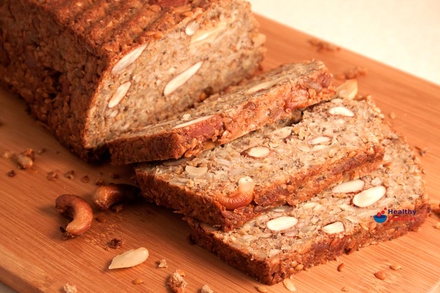Why Should We Eat Nuts?
There’s a wonderful variety of nuts on offer these days – they’re one of the most popular snacks, and can also be used as ingredients in a huge amount of exciting recipes. But are they any good for you?
Vegans have embraced the wonderful possibilities of nuts as the base for many types of Non-Dairy Milk Alternatives, and many of us are aware of the extraordinary properties of Cashews, which can be soaked and whizzed up as an essential part of vegan cheese and sauces. It’s worth bearing in mind the difference between nuts as a botanical classification and nuts as a culturally-accepted term which also encompasses a wider range of drupes (such as Almonds), tubers (like Tiger Nuts and legumes (for example Peanuts).[1]
So let’s take a closer look at the constituents, uses and health benefits of nuts….

Nuts are one of the very best things you can eat. They’re magical little packages of health, wrapped up in lip-smacking tastiness. Eating a handful of nuts every day has been proved to be as – or more – effective at dealing with a huge range of diseases than many of the routinely prescribed medications, which tend to be hugely more expensive, and come with all kinds of unpleasant side effects. In one astonishing study, eating just a few Brazil nuts was shown to have a massively beneficial effect on blood cholesterol just 9 hours after consumption, and – even more amazingly – this effect was still in place a whopping 30 days later, even though no Brazil nuts were consumed in the interim period.[2] This compares to a leading cholesterol-lowering statin medication, which takes 4 days to begin working and has to be taken daily.[3] And that’s before you take into account the cornucopia of possible side effects from the medication, such as nausea, diarrhoea, insomnia, joint pain and indigestion.[4]
Nuts are a fantastic source of protein. Physiologically speaking, protein is protein – your body doesn’t really care where it comes from. The problem with animal protein is that it invariably comes wrapped up with all sorts of things that are very detrimental to human health, such as artery-clogging saturated fat, and those who choose this type of protein are at significantly higher risk of chronic diseases such as type 2 diabetes, while plant protein, such as that from nuts, is associated with a neutral or protective association with diabetes.[5] That’s not all, though – researchers at Harvard who followed the progress of over 100,000 people for decades showed that those who ate nuts every day lived significantly longer than those who didn’t.[6]
Nuts have an impressive amount of iron, with Pistachios the absolute superstar in this regard, with 14mg of iron per 100g. Other nuts containing a good amount of iron are Almonds, Cashews, Pine Nuts and Macadamias. We need iron to transport oxygen around our body and boost our energy levels. It’s especially important for infants, pregnant women and teenage girls, who most suffer from iron deficiency.
What nuts are good for weight loss?
There’s a delightful paradox when it comes to nuts: although they are calorie-dense, eating them in the right amounts doesn’t cause you to gain weight. In fact, adding a handful of nuts to your diet every day can even lead to weight loss.[7] Part of the reason for this is that nuts appear to boost our metabolism – one study showed that while a control group burned an average of 20 grams of fat while resting overnight, another group who ate exactly the same number of calories – but included walnuts – burned off an average of 31 grams of fat.[8] That’s the equivalent of running nearly a mile!
What nuts are high in protein?
Some of the best examples of nuts high in protein are Peanuts, which are roughly one quarter protein, Almonds and Pistachios, both around one-fifth protein, and Cashews, about 15% protein. The protein found in nuts is excellent at filling you up – they contain proteins such as GLP-1 which have been shown to have a superb effect on satiety.[9] And as the fats in nuts are mainly healthy monounsaturated and polyunsaturated fatty acids, eating them doesn’t come with the same risks as sourcing your protein from animal flesh, which has far higher levels of saturated fat.
Not only are nuts wonderful to eat – they come with a gigantic array of astounding health benefits. They help protect you against heart disease.[10] Eating them is associated with a significantly lower rate of death from cancer.[11] They’re fantastic for your cholesterol levels.[12] They don’t lead to weight gain.[13] They even make our beneficial gut bacteria very happy![14]
[1]https://www.theguardian.com/science/blog/2016/nov/10/hips-haws-and-drupes-when-is-a-nut-not-a-nut
[2]https://www.ncbi.nlm.nih.gov/pmc/articles/PMC3693158/
[3]https://pubmed.ncbi.nlm.nih.gov/10868312/
[4]https://www.rxlist.com/consumer_atorvastatin_lipitor/drugs-condition.htm
[5]https://care.diabetesjournals.org/content/37/7/1854
[6]https://www.ncbi.nlm.nih.gov/pmc/articles/PMC3931001/
[7]https://apjcn.nhri.org.tw/server/APJCN/16/4/588.pdf
[8]https://pubmed.ncbi.nlm.nih.gov/20439557/
[9]https://apjcn.nhri.org.tw/server/APJCN/19/1/137.pdf
[10]https://pubmed.ncbi.nlm.nih.gov/32433740/
[11]https://pubmed.ncbi.nlm.nih.gov/33307550/
[12]https://pubmed.ncbi.nlm.nih.gov/33586744/
[13]https://pubmed.ncbi.nlm.nih.gov/32945861/
[14]https://www.ncbi.nlm.nih.gov/pmc/articles/PMC5991202/

